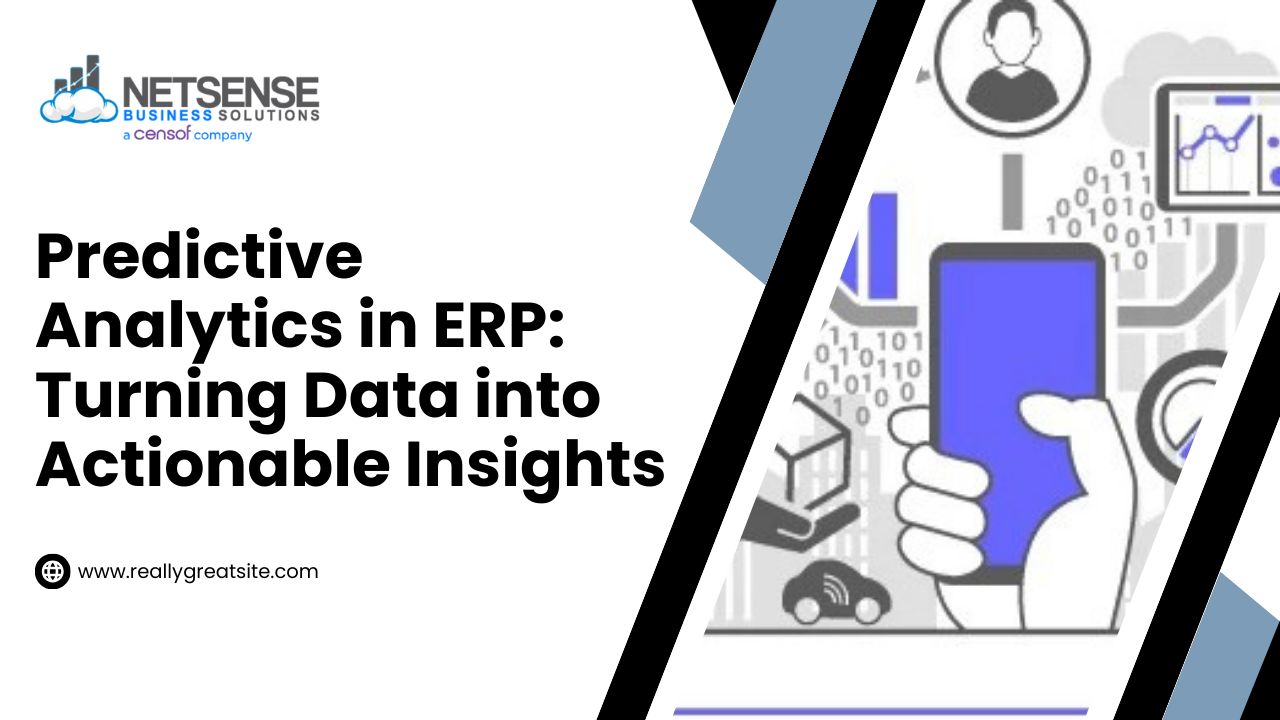Data is considered one of the world’s most valuable assets in today’s busy world of business. However, merely having raw data does not add value; it must be analysed, translated, and used smartly and strategically.
This is where predictive analytics comes in with ERP.
By linking ERP with predictive analytics, businesses will no longer just record what has already taken place; they can look back on possible trends, predict difficulties, and make some data-driven decisions that lead to growth.
What are Predictive Analytics in ERP?
Predictive analytics applies statistical algorithms and machine learning to historical data to recognise patterns and predict future outcomes.
In conjunction with an ERP system, predictive analytics can help businesses:
- Examine vast quantities of operational and financial data in real-time
- Predict demand, revenue, and resource requirements
- Identify risks before they occur
- Create efficiencies across multiple business processes
Instead of dealing with issues after they arise, companies can proactively develop strategies based on sound predictions.
Key Benefits of Predictive Analytics in ERP
Better Forecasting
Ultimately, predictive analytics helps generate very accurate estimates of future sales, future inventory, and future cash flow. This helps companies avoid running out of stock, stacking inventory too high, or running out of cash unexpectedly.
Better Decisions
Predictive insights help leaders make quicker, more confident decisions about growing into new markets, or modifying supply chain operations.
Risk Management
Predictive models can identify looming risks, such as supplier delays, equipment failures, and financial discrepancies, to give companies time to avoid even greater disruption later.
Customer Intelligence
Predictive analytics can help businesses to analyse their customer data and allow them to predict purchasing patterns, find new cross-selling opportunities, and improve customer satisfaction.
Cost Savings
Predictive analytics will help you predict maintenance requirements, resource allocation, or supply chain problems, all of which save you time and money.
Practical Applications of Predictive Analytics in ERP
Supply Chain Management
- Forecast demand based on trends, seasonality, and customer behaviour
- Identify bottlenecks and predict delivery delays.
Financial Planning
- Predict revenues, cost of goods, and profitability.
- Spot anomalies that may suggest fraud.
Human Resources
- Predict employee attrition.
- Identify patterns in workforce productivity.
Production & Operations
- Predict equipment maintenance before it fails.
- Predict production cycles so that you can meet customer demand efficiently.
Challenges in Implementing Predictive Analytics in ERP
While the upside is significant, businesses also must be aware of barriers to effective use of predictive analytics:
- Data Quality: Bad and/or incomplete data means inaccurate predictions.
- Integration: Your ERP and corresponding analytics tools must integrate seamlessly.
- Skills: Businesses need the right talent and partners to properly interpret and act on predictive insights.
Why Netsense is the Right Partner for Predictive ERP?
Netsense is here to help businesses in Malaysia and throughout the region fully unleash the power of ERP solutions by integrating advanced analytics capabilities. We can help you:
- Convert raw data into actionable insights
- Have real-time visibility across all areas of the business
- Build forecasts and predictive models tailored to your specific industry
- Make data-driven decisions, faster and smarter with confidence
No matter your business, retail, manufacturing, distribution, or services, our ERP solutions give you the competitive advantage you need.
Final Thoughts
The pathway of predictive analytics in ERP alters the data landscape for businesses. Instead of solely relying on reports generated on historical data, companies can forecast what is coming so they can respond, be it an opportunity or a risk.
In a competitive market, the only businesses that will survive are those that can predict change and pivot quickly. By using Netsense Secure, a scalable ERP, your business can make the transition from being reactive to being proactive and provide a future-ready organisation.
